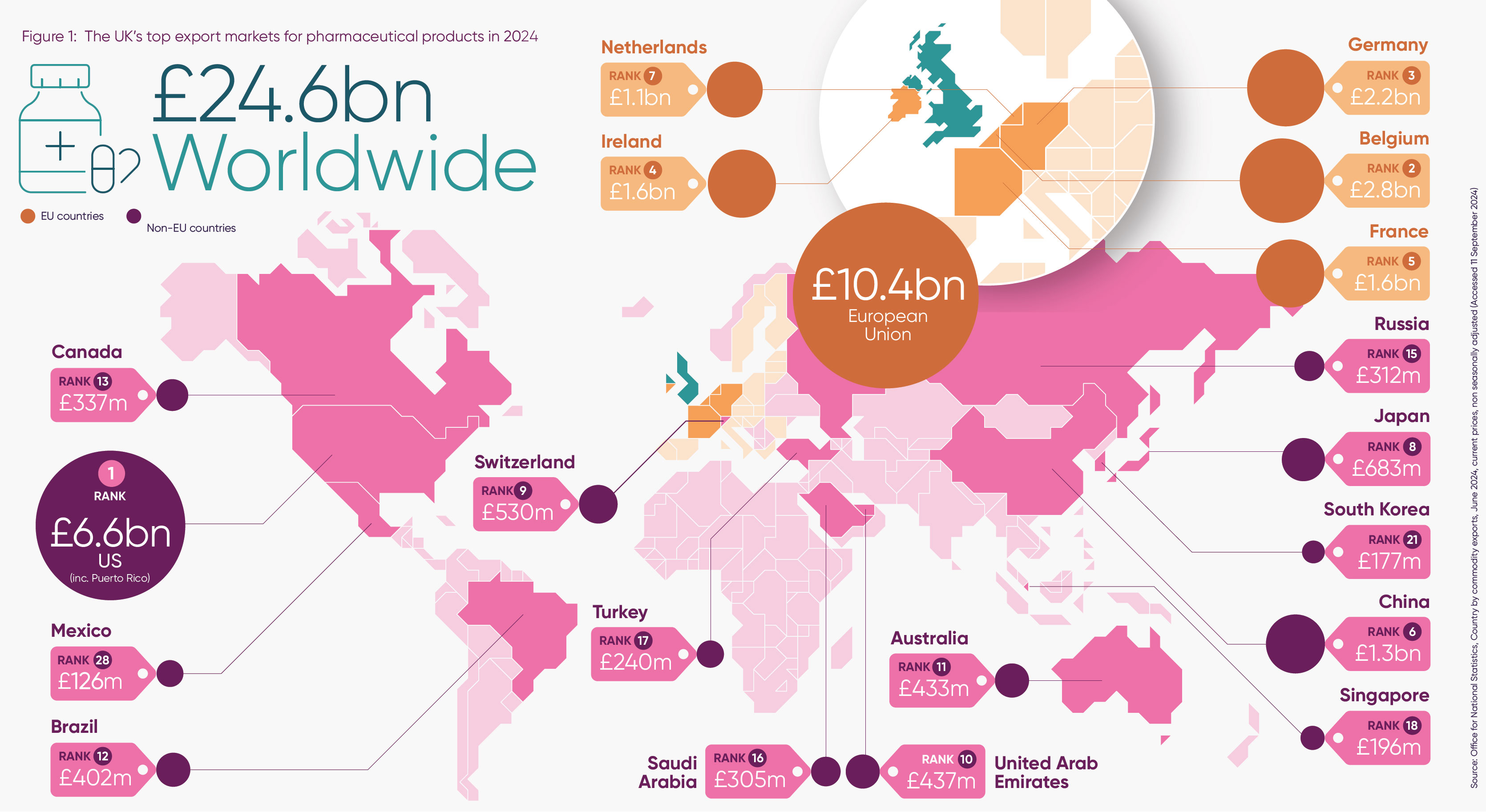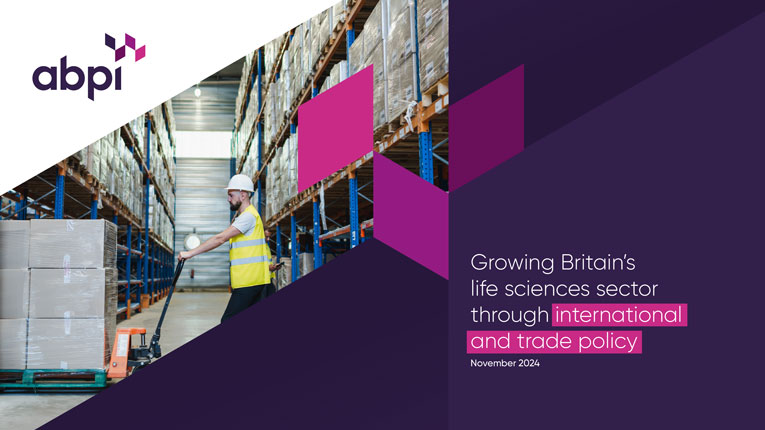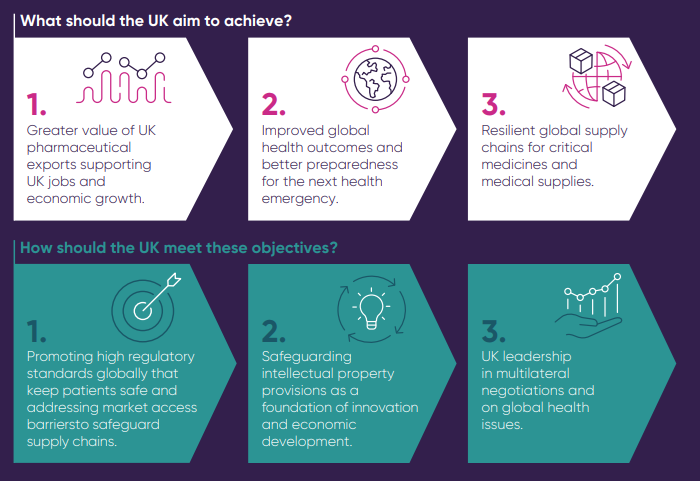International trade
Growing Britain’s life science sector through international and trade policy

Download this version of the map
In a changing international context, the UK needs an approach to international and trade policy that supports the life sciences. The sector is strategically important to the domestic economy and global health security.
The UK’s exceptional strength in life science research and production of world-class medicines and vaccines has developed over many decades out of a strong science base, open approach to foreign investment in pharmaceuticals, a skilled manufacturing workforce, and robust culture of protecting innovation through intellectual property (IP) rights. Its regulators are recognised as among the most experienced and sophisticated in the world.
This ecosystem enables the UK pharmaceutical sector to thrive as a major exporter of life-saving medicines to patients across the globe. Over £24.6 billion worth of medicinal and pharmaceutical products were exported around the world in 20241 – the third highest goods sector in the economy, which has increased 6% in the past 5 years2.
This figure far exceeds the £15 billion worth of branded medicines procured across the UK by the NHS in 20243, illustrating the scale and importance of UK pharmaceuticals trade flows compared to domestic consumption.
£27.2 billion worth of medicinal and pharmaceutical products were imported in 20246.
The pharmaceutical industry invests £9 billion a year in UK research and development, which is by far the largest of any sector. In addition, it delivers £17.6 billion in direct gross value added (GVA)4 to the British economy and supports 126,000 high-skilled jobs5 across the country.
As well as exporting vital medical goods, the UK also exports life sciences ideas – licensing treatments for production, converting its own IP into manufactured medicines in markets around the world, and shaping debates about the present and future of medicines regulation and pharmaceutical innovation.
Growing Britain’s life sciences sector through international and trade policy
In a changing international context, the UK needs a new approach to international and trade policy for the life sciences.
The sector is strategically important to the domestic economy and global health security and has been rightly identified by the new government as key to delivering its core missions.

Delivering international and trade policy that supports the life sciences

The UK should seek to use all of the tools at its disposal to deliver an ambitious international agenda for the life sciences, from high-quality Free Trade Agreements (FTAs) negotiated where there is a strong policy case to do so, to sector-specific agreements such as mutual recognition agreements (MRAs).
The role and importance of international frameworks cannot be overstated for a global sector like the life sciences. The fundamental rules of trade governed by the World Trade Organization (WTO) set minimum standards and the confidence to operate internationally as the life sciences must do, and the World Health Organization (WHO) plays an important role in global health. For the pharmaceutical industry, there are also specific international forums that set regulatory standards for health products.
The UK’s longstanding support for these frameworks is recognised by global boardrooms and vital to demonstrate how leadership can attract the investment needed to compete with the G7.
The UK should also consider more creative approaches to delivering international and trade objectives, including brokering regulatory dialogues between like-minded regulators either bilaterally or through convergence mechanisms that enable work-sharing, collaboration and resource sharing. Nor should Britain be afraid to utilise unilateral policies, such as continuing to allow medicine imports from the EU without the need to re-batch test, or reviewing its external tariff schedule, to deliver its objectives.
In all, a robust and competitive national industrial policy, together with a sophisticated international and trade policy, creates a virtuous circle that will ultimately help to deliver the growth the new government wants.
The UK should continue to influence debates for fair international treatment of Britain’s life sciences firms, while retaining a clear commitment to the strong protections at home that support the UK’s competitive advantage globally.
References:
[The following data was verified in December 2025]
1. Trade in Goods: Country-by-commodity exports, Office of National Statistics [Accessed 12 June 2025]
2. UK trade: June 2025, Office for National Statistics [Accessed 12 June 2025]
3. Aggregate net sales and payment information: August 2025, DHSC [Accessed 10 December 2025]
4. Office for National Statistics, ‘Regional gross value added (balanced) by industry: all ITL regions’, 2021.
5. Office for National Statistics, ‘Industry census data 2021’.
6. Trade in Goods: Country-by-commodity imports, Office for National Statistics [Accessed 12 June 2025]
Related content in this section:
Last modified: 24 September 2025
Last reviewed: 24 September 2025